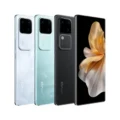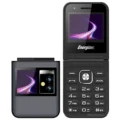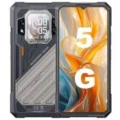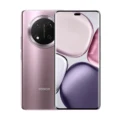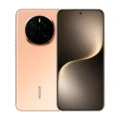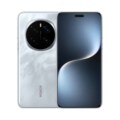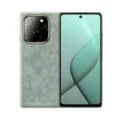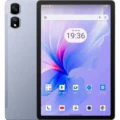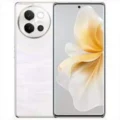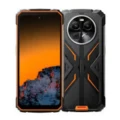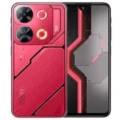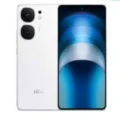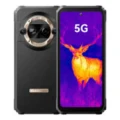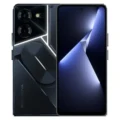vivo X100s


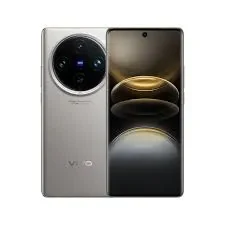

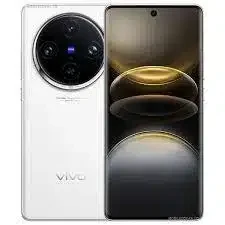
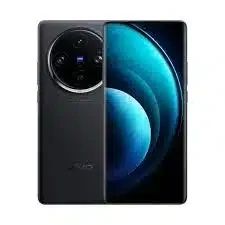
- : 12/16GB RAM Dimensity 9300+
- : 6.78" 1260x2800 pixels
- : 5100mAh 100W
- : 64MP 2160p
Vivo X100s: The Ultimate Phone!
Super Fast and Smooth
The Vivo X100s is super fast! Open apps quickly. Play games smoothly. It’s really fun to use.
Amazing Camera Phone
Love taking pictures? The Vivo_X100s has an awesome camera mobile. Take selfies, group pics, and cool videos.
Bright and Beautiful Screen
The Vivo_X100s has a super bright screen. Watch videos, play games, and experience everything in crystal-clear detail
Long-Lasting Battery
Don’t worry about running out of battery. The Vivo_X100s phone lasts all day. Immerse yourself in music, dive into games, and explore endless entertainment.
Stylish and Cool
The Vivo_X100s looks super cool mobille. It feels great in your hand. Choose your favorite color.
Get the Vivo_X100s
The Vivo_X100s phone is the best phone ever! It’s fast, has a great camera, and looks amazing. Get yours now!
Want to Learn More?
Visit the official website of vivo for detailed information about the vivo X100s: vivo Official sites
Still Unsure?
If you’re still unsure about your choice, explore other options from vivo at your nearest store: vivo Store
Specs
Network
| 2G Network GSM 850 / 900 / 1800 / 1900 - SIM 1 & SIM 2 (dual-SIM) CDMA 800 / 1900 |
GSM 850 / 900 / 1800 / 1900 - SIM 1 & SIM 2 CDMA 800 |
| 3G Network |
HSDPA 800 / 850 / 900 / 1700(AWS) / 1900 / 2100 |
| 4G Network |
1, 2, 3, 4, 5, 7, 8, 18, 19, 26, 28, 34, 38, 39, 40, 41 |
| 5G Network |
1, 3, 5, 8, 28, 38, 40, 41, 77, 78 SA/NSA |
| Speed |
HSPA, LTE, 5G |
LAUNCH
| Announced | May, 2026 |
| Status |
Available. Released 2024, May 17 |
BODY
| Dimensions | 163.1 x 75.8 x 7.8 mm (6.42 x 2.98 x 0.31 in) |
| Weight | 203 g (7.16 oz) |
| Build | Glass front, aluminum frame, glass back |
| SIMs SIM (Subscriber Identity Module) is a small card that contains mobile network subscriber's account information. This allows the phone using the card to attach to a mobile network. The SIM card is most commonly associated with GSM and UMTS mobile networks. Moving a SIM card from one phone to another allows a subscriber to switch mobile phones without having to contact their mobile network carrier. SIM cards can also be used by a phone to store limited amounts of data, such as phone numbers and text messages. |
Dual SIM (Nano-SIM, dual stand-by) IP68/IP69 dust/water resistant (up to 1.5m for 30 min) |
Display
| Display Type Display Technology => A number of display technologies and types used in mobile phones => TFT (Thin Film Transistor), IPS (In-Place Switching), OLED (Organic Light Emitting Diode), AMOLED (Active-Matrix Organic Light-Emitting Diode), Super AMOLED (an even advanced version of AMOLED), Resistive Touchscreen (Resistive touchscreens contain two layer of conductive material with a very small gap between them which acts as a resistance), Capacitive Touchsceen (Capacitive touchscreen technology consists of a layer of glass coated with a transparent conductor) | LTPO AMOLED, 1B colors, 120Hz, 3000 nits (peak) |
| Size | 6.78 inches, 111.0 cm2 (~89.8% screen-to-body ratio) |
| Resolution | 1260 x 2800 pixels, 20:9 ratio (~453 ppi density) |
PLATFORM
| Operating System OS => Every computer system run on a base software called Operating System (OS). Operating System controls all basic operations of the computer (such as smartphone, PDAs, tablet computers and other handheld devices). The Operating System allows the user to install and run third party applications (apps), apps are used to add new functionality to the device. | Android 14, OriginOS 4 |
| Chipset Chipset is a group of integrated circuits designed to perform one or a more dedicated functions, often with real time computing constraints, Popular smartphones are equipped with more advanced embedded chipsets that can do many different tasks depending on their programming. | Mediatek Dimensity 9300+ (4 nm) |
| CPU CPU (Central Processing Unit) mostly known as processors, CPU processes instructions in order to carry out certain functions that make your device operate properly. Processors are often described as the brain of computers, smartphones and tablets, Smartphones and tablets rely on processors to carry out their every task, Processors are an incredibly important factor in selecting any type of computing device, including your smartphone. | Octa-core (1x3.4 GHz Cortex-X4 & 3x2.85 GHz Cortex-X4 & 4x2.0 GHz Cortex-A720) |
| GPU GPU (Graphics Processing Unit) is a single-chip processor designed to rapidly manipulate and alter memory to accelerate the creation of images in a frame buffer intended for output to a display, This includes things such as lighting effects, object transformations, and 3D motion. | Immortalis-G720 MC12 |
MEMORY
| Card Slot Memory Card Slot is a special slot for inserting a memory card. Memory cards allow you to expand the phone's built-in memory, A memory card (sometimes called a flash memory card or a storage card) is a small storage medium used to store data such as text, pictures, audio, and video, for use on small, portable or remote computing devices such as mobile phones, mp3 players, digital cameras. | No |
| Internal | 256GB 12GB RAM, 256GB 16GB RAM, 512GB 16GB RAM, 1TB 16GB RAM UFS 4.0 |
MAIN CAMERA
| Video | 4K@30/60fps, 1080p, gyro-EIS, Cinematic mode (1080p) |
| Camera Features |
Zeiss optics, Zeiss T* lens coating, LED flash, panorama, HDR, 3D LUT import |
SELFIE CAMERA
| Features |
HDR |
| Video | 1080p@30/60fps |
SOUND
| Loudspeaker | Yes, with stereo speakers |
| 3.5mm jack | No |
COMMS
| WLAN |
Wi-Fi 802.11 a/b/g/n/ac/6/7, dual-band |
| Positioning | GPS (L1+L5), BDS (B1I+B1c+B2a), GALILEO (E1+E5a), QZSS (L1+L5), NavIC (L5), GLONASS |
| Bluetooth Bluetooth is a wireless communications technology for exchanging data between mobile phones, headsets, computers and other network devices over short distances without wires, Bluetooth technology was primarily designed to support simple wireless networking of personal consumer devices. | 5.4, A2DP, LE, aptX HD, LHDC |
| Infrared Infrared connectivity is an old wireless technology used to connect two electronic devices. It uses a beam of infrared light to transmit information and so requires direct line of sight and operates only at close range. | |
| USB | USB Type-C 2.0, OTG |
| NFC NFC (Near field communication) is a set of standards for smartphones and similar devices to establish peer-to-peer radio communications with each other by touching them together or bringing them into proximity, usually no more than a few inches. | |
| Radio |
Features
| Sensors Sensors are electronic components that detects and responds to some type of input from the physical environment. The specific input could be light, heat, motion, moisture, pressure and location, The output is generally a signal that is converted to use in computing systems, a location sensor, such as a GPS receiver is able to detect current location of your electronic device. |
Fingerprint (under display, optical), accelerometer, gyro, proximity, compass, color spectrum |
BATTERY
| Battery Type Battery Type => Cell phones run on various kinds of batteries depending on the manufacturer, phone size or shape and features. There are basically four types of cell phone batteries => Lithium Polymer, Lithium Ion, Nickel Metal Hydride and Nickel Cadmium. | Li-Ion (Lithium Ion) |
| Charging The functionality responsible for recharging batteries in portable devices, such as mobile phones, significantly influences both battery lifespan and the practicality of daily product usage.The charging process, encompassing factors like voltage, current, and completion actions, is contingent upon the battery's size and type.Contemporary battery chargers dynamically adjust charging parameters based on the battery's current charging state. Charging an empty battery poses no safety risk, allowing for a quicker charging process. Consequently, many charging speed benchmarks, including ours, specify the battery level achieved after a 30-minute session on an empty battery.Standard chargers with a power output of 5V/1A, equivalent to 5W, serve as a baseline, with anything surpassing this speed classified as quick or fast charging. | 100W wired, 50% in 11 min (advertised) Reverse wired |
MISC
| Colors |
Titanium, White, Grey, Green |
| Model | V2359A |
| Price |
About 520 EUR |
TESTS
Reviews
Disclaimer Note
We strive to maintain accurate and up-to-date content on our website for general information purposes only. Please refrain from using the material for business, legal, or any other decisions.




